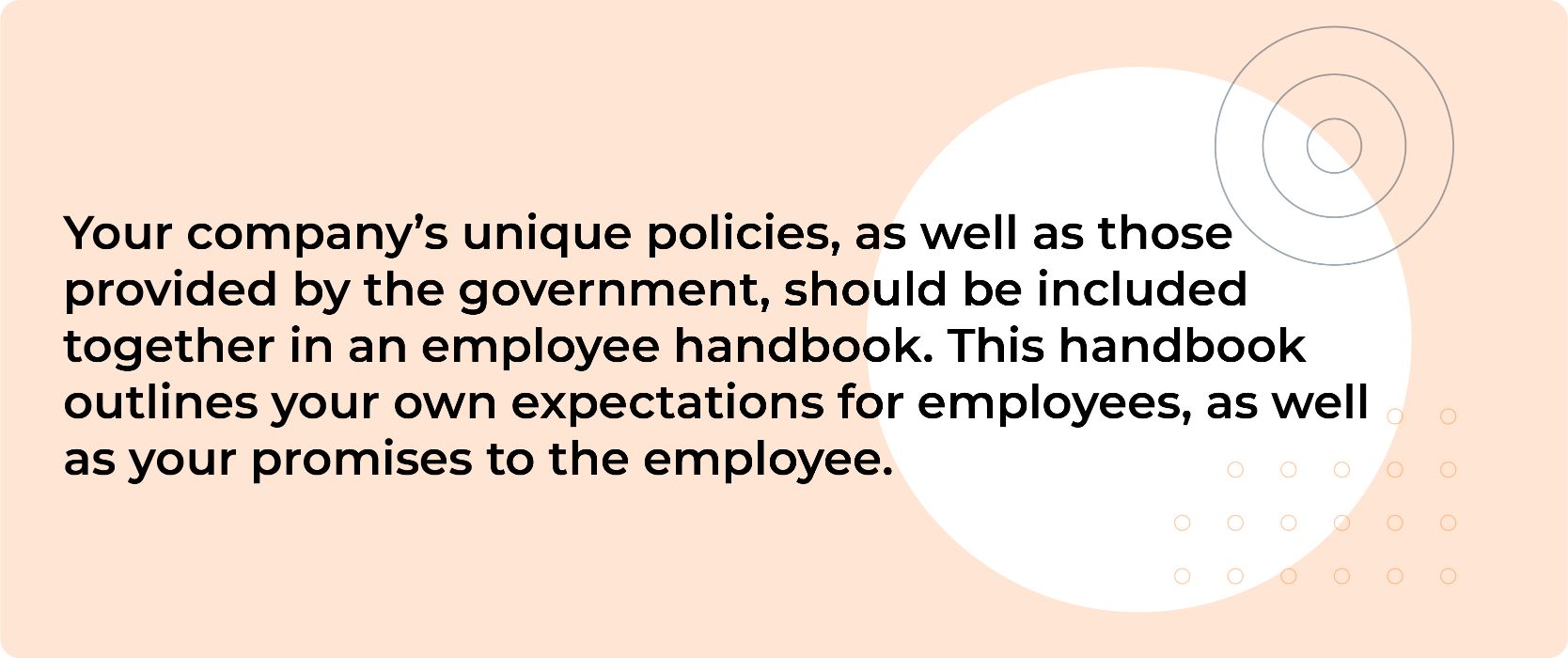What Are the Important HR Requirements for Small Businesses?

Small business owners are a lot of things: savvy, driven, thoughtful. Loaded with either a ton of ideas, or one very specific idea that can fuel their passion for what they do every day. Usually, though, they’re not always well-versed in how human resource management operations are carried out in small organizations.
Human resource management in a small business is no minor task, and shouldn’t be considered one. Not only are employees one of a small business owner’s most important assets, it’s your duty as an employer to maintain health and safety policies that keep them happy and performing well.
If you don’t dedicate a lot of your time to learning human resources fundamentals, it’s practically impossible to keep up with changes while also performing the other functions that keep your business thriving. But there are essential features for human resources that should be at the top of your mind daily.
What Human Resources Will You Need for Your Business?
As an owner, you probably have a lot of questions about human resources services for small businesses. Which human resources do you need, versus which ones are nice to have? Below are just a few necessary human resource functions that are needed to both meet compliance regulations and attract (and retain) the employees who are going to be the right ones for your business.
Paperwork
In order to hire and employ a workforce, it’s important to maintain three types of files on each employee. The first is an I-9 form, which verifies the identity and employment authorization of every employee in the business. Next is a general employee file. Here, you’ll keep basic employee information like resumes, W-4s, payroll information, and more. Third, there’s the employee medical file, which includes disability and medical exam information.
It’s important to note that all of these files must be kept strictly confidential. This is just the start of staying in compliance.
Handbook

Your company’s unique policies, as well as those provided by the government, should be included together in an employee handbook. This handbook outlines your own expectations for employees, as well as your promises to the employee. They usually break down policies for paid time off, medical and family leave, benefits, grounds for termination, appropriate conduct, and more.
Legally, employee handbooks should also include other policies and obligations, including employer and employee rights. Consider standards for behavior, anti-discrimination policies, non-disclosure and non-compete agreements, and compensation and benefits. The federal government and individual states have specific regulations to follow, so make sure you are thoroughly familiar with both.
Posters
Every business is required to have certain posters hanging in employee common areas. The Department of Labor has policies pertaining to employee health and safety, minimum wage requirements, and other employee-related rights. If you have remote employees, or those who regularly work in the field, make sure you are providing them access to the necessary posters as well.
Compensation & Benefits
Investing in your employees starts with providing compensation and, in many cases, additional benefits as well. Competitive wages and a strong benefits package can help reduce turnover and maintain a healthy relationship with your workers.
Beyond wages, many employees would seriously consider a job with lower pay if it has better benefits than an alternate choice. There is a wide variety of benefit options to choose from, so thoughtfully consider what will have the most impact with your team. Options include health insurance, dental and vision insurance, life and disability insurance, a retirement plan, as well as perks like FSA, Commuter Benefits, wellness plans, etc. But keep in mind there are some things, like tax withholding, unemployment insurance, and worker’s compensation that are required by law.
Hiring Process
It benefits every business to have a documented hiring process. Searching for, hiring, onboarding, and training a new employee is a serious undertaking—and an expensive one. If you choose the wrong person, it can be devastating financially. A clear hiring process can make the search more effective.
From the initial talent search to a well-defined job description, to the interview process, assessments, and background screening, each step can be thorough and thoughtful without causing undue financial constraints.
Development & Training
Once your team is in place, one of the best ways to get the most out of them is to invest in development and training. It keeps your employees engaged in your business as you demonstrate that you value them and their growth. And you benefit from having employees who are better experienced and ready to take on a variety of new tasks.
Performance Reviews
As your employees move through their lifecycle with your company, it’s important to provide consistent feedback and encourage them to set goals. Like development and training, performance reviews are an investment in your team and a way for them to see how they can improve their skills, progress in their career, and discover opportunities within your company. Reviews also allow you to praise areas of demonstrable growth and offer guidance in how they can continue to improve.
As a note, if you have concerns about their performance, those should be handled as they arise — don’t wait to spring it on them or you’ll catch them off guard. Have those conversations privately, as soon as schedules allow.
Rewards & Recognition
Finding interesting, fun, thoughtful ways to reward and recognize your employees for a job well done doesn’t need to break the bank. Choose things that are unique to your business or industry, or just make it clear that you value the hard work your employees are putting in. Recognition means different things to different people, so consider multiple approaches for maximum impact.
Don’t worry if all of this sounds overwhelming. It’s a lot to consider. That’s why many small businesses choose to outsource HR functions. If that sounds like something that could work for your business, contact Milestone. Our experts maintain the latest knowledge of HR compliance and will work with you to create a work environment that helps your employees grow, enabling you to focus on growing your business.
Related Content

Is Indiana A Right-To-Work State?
Indiana officially became a right-to-work state in 2012, joining a growing number of states that have adopted similar legislation. Learn more ...

HR Requirements For Small Businesses In Indiana
For small businesses in Indiana, the necessity of having a dedicated HR department is often a topic of debate. Explore ...

HR Requirements For Small Businesses In Indiana
For small businesses in Indiana, the necessity of having a dedicated HR department is often a topic of debate. Explore ...
Stay in the know